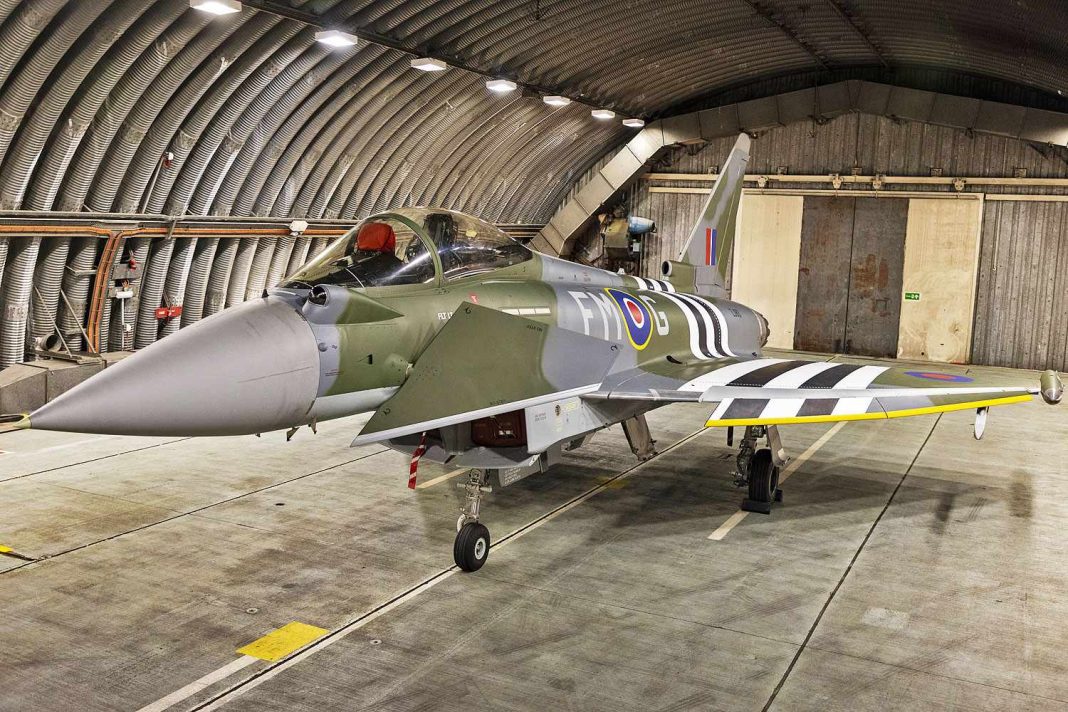GCAP: Joint Effort for Advanced Air Combat Technology
The Global Combat Air Programme (GCAP) is an ambitious international collaboration involving the United Kingdom, Italy, and Japan. The goal of this program is to develop a cutting-edge 6th generation fighter jet that will redefine air combat capabilities. The developers are designing this advanced aircraft to replace aging fighter jets like the Boeing F-15 and the Eurofighter Typhoon. With a budget reaching billions of euros, the GCAP aims to become operational by the mid-2030s, representing a significant leap in modern warfare technology.
Reports have recently surfaced that Saudi Arabia may join the GCAP as a new partner. This inclusion would expand the project’s international footprint and bring additional resources and perspectives to the program. The possibility of Saudi Arabia’s participation has been under consideration, as discussions about involving more nations began earlier this year. If confirmed, this development could mark a major milestone for both Saudi Arabia and the GCAP initiative.
The project is not only about building an aircraft but also about fostering cooperation between nations with shared security interests. Such collaboration allows countries to share expertise, reduce costs, and accelerate technological advancements. By joining the GCAP, Saudi Arabia would align itself with global leaders in aerospace and defense, strengthening its position in the global defense industry.
Saudi Arabia’s Push for Defense and Industrial Growth
Saudi Arabia’s interest in the GCAP aligns closely with its broader strategy to modernize its air force and diversify its economy. Over the years, Saudi Arabia has focused on enhancing its defense capabilities, which includes acquiring state-of-the-art fighter jets. However, its recent attempts to procure the Eurofighter Typhoon faced challenges. Germany, one of the nations involved in the original Typhoon program, initially blocked the sale due to political concerns.
Despite these hurdles, Saudi Arabia remains committed to expanding its fighter fleet and reducing reliance on foreign suppliers. The country has launched an ambitious industrialization initiative, aiming to reduce its dependence on oil exports and develop a robust domestic defense industry. This effort includes substantial investments in advanced technologies and defense manufacturing. Joining the GCAP would provide Saudi Arabia with access to cutting-edge aerospace technologies while allowing the kingdom to contribute to the project through its growing industrial base.
The GCAP could also provide Saudi Arabia with opportunities to upskill its workforce, establish partnerships with leading defense companies, and position itself as a regional hub for advanced manufacturing and aerospace engineering. By participating in such a high-profile project, Saudi Arabia can further its goals of becoming a self-reliant and influential player in the global defense market.
Origins and Development of the GCAP
The origins of the Global Combat Air Programme trace back to 2022 when the United Kingdom initiated studies for an advanced stealth fighter, initially named Tempest. The Tempest project aimed to create a next-generation combat aircraft with unmatched capabilities, including advanced stealth, artificial intelligence (AI), and integration with unmanned systems. Recognizing the immense potential of the project, Italy and Japan joined the UK in a collaborative effort to develop this revolutionary fighter jet.
The GCAP is spearheaded by industry leaders such as BAE Systems in the UK, Leonardo in Italy, and Mitsubishi in Japan. These companies bring decades of experience in aerospace engineering and military technology, making the program a powerful alliance of technical expertise. The aircraft being developed under the GCAP is expected to incorporate innovative features such as advanced sensors, enhanced weapon systems, and improved survivability in complex combat scenarios.
This program reflects a broader trend of international cooperation in defense. Pooling resources, expertise, and funding allows countries to tackle the immense costs and challenges associated with developing such sophisticated technologies. The GCAP is not just about building a fighter jet but about creating a platform that will define the future of air combat for decades to come.
Saudi Arabia’s Strategic Role in GCAP and Global Defense Collaboration
Notably, Sweden was involved in the initial research phase of the program but chose not to proceed further. Meanwhile, other European nations, including France, Germany, and Spain, have pursued their own 6th generation fighter jet initiative under the Future Combat Air System (FCAS) program. The FCAS project is expected to grow further, with Belgium likely to join by 2025.
The potential inclusion of Saudi Arabia in the GCAP marks a significant moment in the program’s evolution. Saudi Arabia’s participation would bring additional resources, regional influence, and strategic value to the initiative. As the GCAP continues to develop, it exemplifies how nations can work together to address shared security challenges and advance technological innovation.
By participating in the GCAP, Saudi Arabia would not only enhance its defense capabilities but also position itself as a key contributor to one of the world’s most advanced aerospace programs. The collaboration between the UK, Italy, Japan, and potentially Saudi Arabia underscores the importance of international partnerships in shaping the future of global security and defense.
